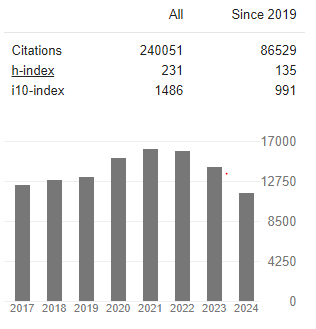Is Sentinel Lymph Node Tumor Burden a Prognostic Factor for Disease-Free Survival in Patients with Melanoma of the Trunk and Extremities?
Abstract
Carlos Lehmann-Mosquera, Raul Suarez-Rodriguez, Patricia Lopez-Correa, Ricardo Sanchez, Samuel David Morales, Mau-ricio Garcia-Mora, Javier Angel-Aristizabal, Ivan Marino-Lozano, Carlos Alfonso Duarte-Torres and Sandra E. Diaz-Casas
Introduction Sentinel lymph node (SLN) involvement in patients with melanoma is the most important prognostic factor and is decisive for the indication of adjuvant systemic therapy. Scientific evidence shows that SLN tumor burden is a prognostic factor for disease- free survival.
Methods A descriptive observational historical cohort study was conducted, which included patients diagnosed with melanoma of the trunk and extremities who underwent SLN biopsy in the Functional Unit for Breast and Soft Tissue Tumors at the Instituto Nacional de Cancerología (Bogotá, Colombia). The clinical characteristics were described, with a review by pathology of the size of lymph node metastasis and extracapsular extension in the histological plate of each included patient. The analyses were performed with the statistical program Stata 16®.
Results The study identified 195 patients diagnosed with melanoma who underwent SLN biopsy; 71 of them (36%) had metastatic involvement, and 62% (n=44) were acral lentiginous melanoma (ALM). When applying the Rotterdam criteria, no statistically significant difference was found in overall survival (Log-rank test, χ 2(2) = 2.35; p=0.3), but there was a marginal difference in disease-free survival (Log-rank test, χ 2(2) =5.97; p=0.0505) for the group with the highest tumor burden.
Conclusions Metastatic SLN involvement greater than 1 mm is associated with lower diseasefree survival. SLN tumor burden could be used as a clinically relevant prognostic factor for patients with a medical decision to skip lymphadenectomy, given that it predicts additional nodal involvement and the indication for adjuvant immunotherapy.



